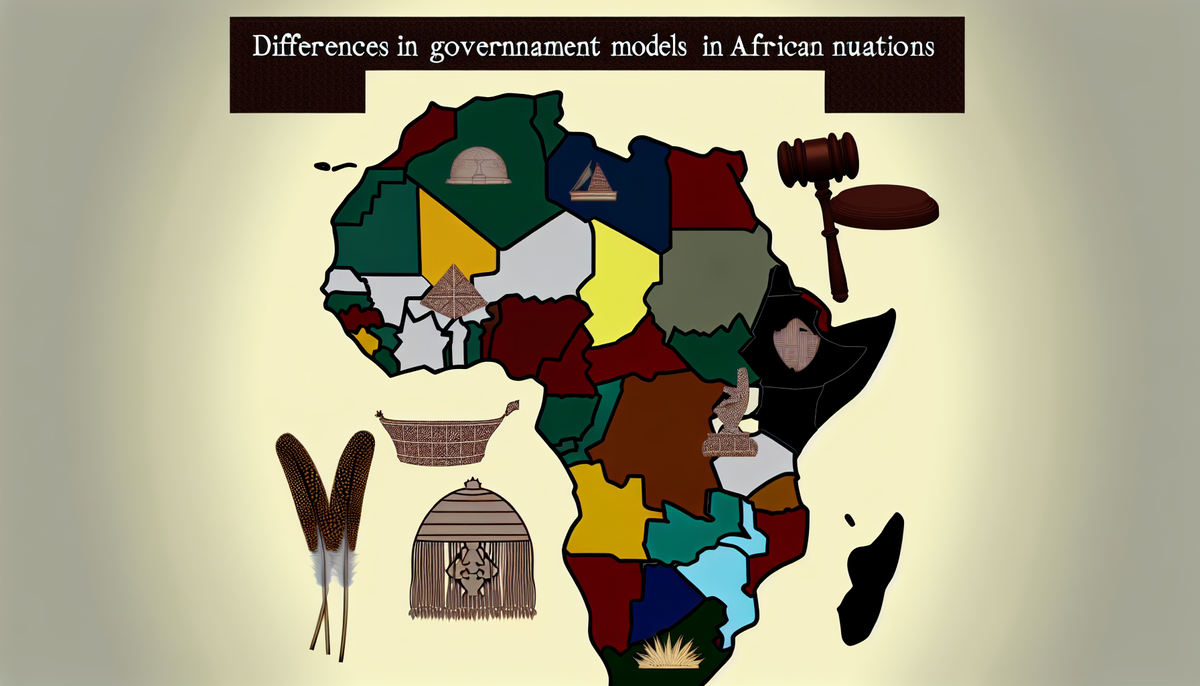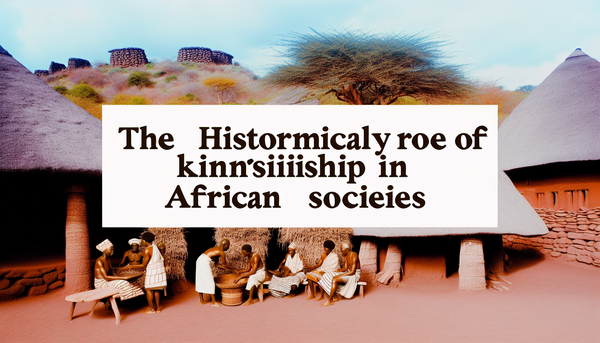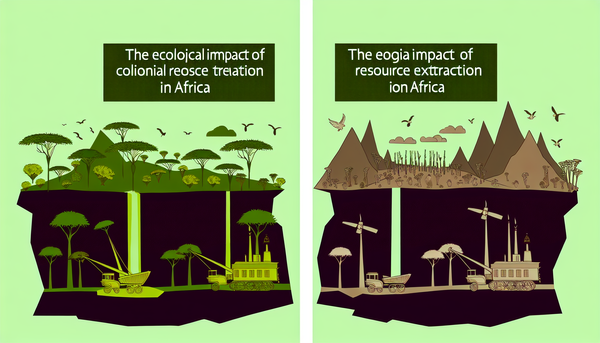Differences in Governance Models in African Nations

Colonial Legacies and Modern State Structures
The historical context of colonialism significantly shapes the governance models found in many African nations today. European powers established arbitrary borders and imposed centralized administrations, often disregarding existing ethnic and tribal affiliations. This has led to ongoing challenges in national identity and unity, as many states consist of diverse groups with distinct cultural backgrounds and political aspirations.
Post-independence, African leaders faced the daunting task of building cohesive states from these colonial constructs. Some nations inherited centralized governance systems, which concentrated power in the hands of a few, often leading to authoritarian rule. Conversely, others attempted to decentralize authority, fostering local governance structures to enhance community participation. However, the legacy of colonial systems still lingers, influencing contemporary political discourse and institutional design.
Furthermore, corruption and political instability can often be traced back to colonial times, where extractive institutions prioritized resource exploitation over citizen welfare. These historical injustices continue to affect trust in government and civic engagement. Thus, understanding the colonial roots of governance in Africa is essential for analyzing current challenges and exploring sustainable paths toward democratic and inclusive governance frameworks.
Presidential versus Parliamentary Systems
In Africa, the choice between presidential and parliamentary systems of governance significantly impacts political stability, accountability, and citizen engagement. Presidential systems, where a president serves as both head of state and government, are prevalent in many nations. This model offers strong executive power, allowing leaders to enact policies swiftly. However, it can also lead to authoritarianism, particularly when checks and balances are weak, as seen in countries like Uganda and Zimbabwe, where long-term presidents have consolidated power.
On the other hand, parliamentary systems, characterized by a prime minister elected from the legislature, promote collaborative governance and political pluralism. Countries like Ghana and Kenya have experimented with this model, often resulting in more responsive policies and greater representation for diverse political interests. However, they are not without challenges; unstable coalitions can lead to frequent changes in leadership and policy inconsistency.
The distinct fit of either system often depends on historical context, social structures, and political culture. As African nations navigate their post-colonial identities, the debate between these governance models continues to shape electoral processes and the relationship between citizens and their governments, influencing the broader trajectory of democracy on the continent.
The Influence of Tribal Leadership on National Policies
Tribal leadership plays a pivotal role in shaping national policies across many African nations, often acting as a bridge between traditional governance structures and contemporary political systems. Despite the establishment of modern states, tribal or ethnic affiliations remain critical in determining political loyalty, social cohesion, and community mobilization. Leaders from various ethnic groups often wield significant influence, as they are typically viewed as representatives of their communities, impacting decisions at the national level.
In countries like Nigeria and Kenya, tribal leaders not only contribute to political discourse but also impact resource distribution and local development initiatives. This can lead to positive outcomes, such as increased political participation and representation for marginalized communities. However, the significant influence of tribal leadership can also foster division, as national agendas may be overshadowed by ethnic interests, exacerbating conflicts.
Moreover, when national policies are perceived to favor one tribe over another, it can lead to grievances and tensions. Balancing tribal interests with national unity thus presents a complex challenge for policymakers. Acknowledging the role of tribal leadership is essential for fostering inclusive governance and promoting collaboration among diverse groups, which is vital for sustainable development and social harmony in the region.
Elections, Democracy, and Authoritarian Practices
Elections in Africa serve as a critical barometer for democracy, yet their execution often reveals a complex interplay between democratic aspirations and authoritarian practices. While many nations have adopted electoral frameworks aimed at promoting representative governance, the reality frequently diverges, leading to questions about the legitimacy of political processes. In numerous countries, elections are marred by allegations of fraud, voter suppression, and manipulation, undermining the democratic ideals they are meant to uphold.
Authoritarian leaders may utilize state resources to entrench their power, resulting in a cycle where elections become mere formalities rather than opportunities for genuine political change. For instance, in countries like Ethiopia and Cameroon, long-standing rulers have employed various strategies to maintain control, including constitutional amendments that extend term limits and restrict political opposition. These practices often lead to public disillusionment and protests, which can result in violent crackdowns.
However, the resilience of civil society and advocacy groups plays a crucial role in pushing back against authoritarian tendencies. Grassroots movements and increased engagement in electoral processes demonstrate a growing demand for accountability and transparency. Thus, while challenges persist, the struggle for genuine democracy continues to evolve, highlighting the significance of elections as a method for shaping political landscapes across the continent.
Role of Foreign Aid and Investment in Political Stability
Foreign aid and investment are instrumental in shaping the political stability of many African nations, providing vital resources for economic development, infrastructure, and social programs. On one hand, international assistance can help address critical challenges such as poverty, healthcare, and education, bolstering governments' ability to meet citizens' needs. For instance, countries that have received substantial aid, like Tanzania and Rwanda, have demonstrated improved health outcomes and growth, contributing to political stability.
However, the relationship between foreign aid and political stability is complex. Dependency on aid can lead to weakened governance structures, as governments may prioritize the interests of donor nations over the needs of their citizens. Moreover, aid can exacerbate corruption if not monitored effectively, leading to public disillusionment and increasing unrest.
Investment from foreign entities, particularly in sectors like mining and agriculture, can also influence stability. While it can create jobs and stimulate economic growth, it has sometimes resulted in conflicts over resources, especially where local communities are excluded from the benefits. Therefore, the challenge lies in ensuring that foreign aid and investment align with national development goals and foster sustainable political frameworks. An effective balance between foreign support and local empowerment is key to fostering long-term stability and resilience.
Impact of Regional Unions and African Cooperation
Regional unions and African cooperation initiatives play a crucial role in addressing the continent's diverse challenges by fostering collaboration among member states. Organizations such as the African Union (AU) and regional blocs like the Economic Community of West African States (ECOWAS) aim to promote peace, stability, and development through collective action. These institutions provide a platform for dialogue and negotiation, facilitating conflict resolution and mediating disputes, which is essential for maintaining stability in volatile regions.
Moreover, regional cooperation enhances economic integration, allowing countries to leverage their strengths and resources for mutual benefit. Initiatives such as the African Continental Free Trade Area (AfCFTA) aim to eliminate trade barriers among member states, promoting intra-African trade and economic growth. This increased economic interdependence can mitigate conflicts and foster stability by creating shared interests.
However, the effectiveness of these unions often faces challenges, including political differences among member states and varying levels of commitment to collective goals. Additionally, external influences and historical legacies can complicate efforts at collaboration. Nevertheless, the ongoing pursuit of regional cooperation reflects a growing recognition of the importance of unity in addressing Africa's challenges, highlighting the potential for enhanced stability and development through collective action and shared vision.
Federalism and its Variations Across Countries
Federalism is a governance system that divides power between a central authority and constituent political units, such as states or provinces. This approach aims to accommodate diverse populations and provide a framework for self-governance while maintaining national unity. Countries like the United States and Germany exemplify traditional federalism, where states have significant legislative powers, allowing for a balance of authority that can enhance local representation and responsiveness.
However, variations of federalism exist across the globe, each adapted to specific historical and cultural contexts. In countries like Canada, federalism incorporates the recognition of linguistic and ethnic diversity, promoting regional autonomy for provinces with distinct identities. Meanwhile, in India, a quasi-federal model accommodates a vast array of languages, cultures, and religious groups, granting states certain powers while maintaining tight control by the central government to ensure national cohesion.
In contrast, countries like Nigeria exhibit a more complex federal structure, where ethnic considerations profoundly influence power distribution. This can exacerbate tensions if specific groups feel marginalized. Ultimately, the effectiveness of federalism depends on the ability to balance local governance with national interests, fostering cooperation among diverse populations while navigating the challenges of representation, resource allocation, and conflict resolution.



